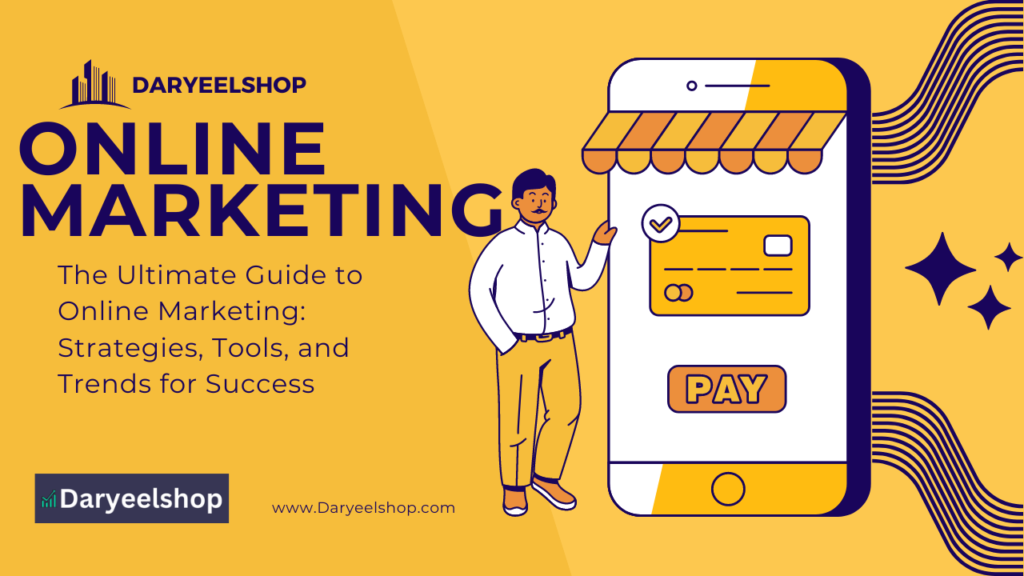Online Marketing
Introduction to Online Marketing
In today’s digital age, online marketing has become an essential component of any successful business strategy. Also known as digital marketing, it refers to the promotion of products or services through the internet using a variety of channels and strategies. From search engines like Google to social media platforms like Facebook and Instagram, online marketing allows businesses to reach a global audience in real-time. Unlike traditional marketing, which is often expensive and difficult to measure, online marketing offers a cost-effective, measurable, and highly targeted way to engage with customers.
The significance of online marketing lies in its ability to connect businesses with their ideal customers, regardless of location, time, or device. Whether you’re a small local business or a large multinational company, online marketing opens doors to new markets and opportunities. As more consumers rely on the internet for information, shopping, and entertainment, mastering online marketing has become crucial for staying competitive in the marketplace.
In this guide, we’ll explore the various types of online marketing, their benefits, and how you can leverage them to grow your business. From SEO to social media marketing, we’ll cover the essential tactics that form the foundation of a successful online marketing strategy.
Types of Online Marketing
Online marketing encompasses a wide range of strategies, each designed to reach and engage audiences through different digital channels. Here are some of the most effective and popular types of online marketing:
Search Engine Optimization (SEO)
SEO is the process of optimizing your website to rank higher in search engine results pages (SERPs) like Google. It involves using relevant keywords, creating high-quality content, and improving the user experience. The goal of SEO is to increase organic traffic to your site by ensuring it appears at the top of search results for queries related to your business.
Pay-Per-Click (PPC) Advertising
PPC is a form of online advertising where businesses pay a fee each time their ad is clicked. It’s a quick way to drive traffic and is often used on platforms like Google Ads and Bing Ads. PPC ads appear at the top of search results or on various websites. It allows businesses to target specific keywords, locations, and demographics, making it highly effective for driving targeted traffic.
Content Marketing
Content marketing focuses on creating valuable, relevant, and consistent content to attract and engage a clearly defined audience. This includes blog posts, videos, infographics, eBooks, and more. By providing informative content, businesses can build trust with their audience, improve brand awareness, and drive conversions over time.
Social Media Marketing
Social media marketing involves using platforms like Facebook, Instagram, Twitter, LinkedIn, and Pinterest to promote products or services. It can be both organic (unpaid posts) and paid (advertisements). Social media allows businesses to interact directly with their audience, build brand loyalty, and share engaging content.
Email Marketing
Email marketing is one of the most cost-effective forms of online marketing. It involves sending targeted messages to a list of subscribers. Email campaigns can be used for various purposes, including promotions, product updates, or nurturing leads. Personalized emails that deliver relevant content can significantly improve customer retention and conversions.
Affiliate Marketing
Affiliate marketing allows businesses to partner with individuals or companies (affiliates) who promote their products in exchange for a commission on sales generated. Affiliates use their websites, blogs, or social media to drive traffic to the business’s site. It’s a performance-based marketing model that expands a business’s reach through external partners.
Influencer Marketing
Influencer marketing leverages individuals with a large online following to promote a brand or product. By collaborating with influencers who have a strong influence over their audience, businesses can tap into their credibility and reach potential customers in a more authentic way.
Video Marketing
Video marketing uses platforms like YouTube, TikTok, and Instagram to create and share video content that promotes a brand, product, or service. Videos are highly engaging and have become a preferred medium for consumers to learn about products and services, making them a powerful tool in online marketing.
Mobile Marketing
Mobile marketing targets users on their smartphones, tablets, or other mobile devices. This includes SMS marketing, mobile apps, push notifications, and mobile-friendly websites. As mobile usage continues to rise, businesses are focusing more on optimizing their marketing strategies for mobile audiences.
Display Advertising
Display advertising involves placing banner ads, video ads, or rich media ads on websites or apps that are relevant to the target audience. These ads are usually displayed on third-party websites and help build brand awareness and drive traffic to a business’s website.
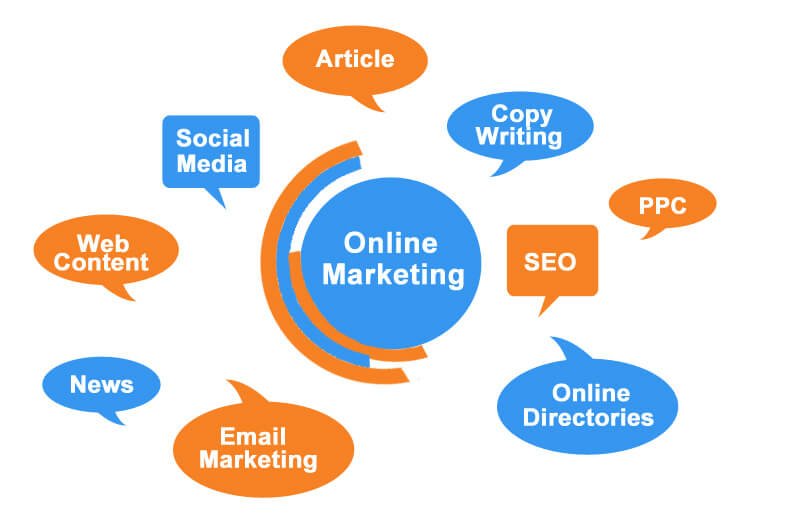
Affiliate Marketing: Partnering for Growth
Affiliate marketing is a performance-based strategy where businesses collaborate with individuals or companies (affiliates) to promote their products or services in exchange for a commission on sales generated through affiliate links. It’s an excellent way for businesses to expand their reach without significant upfront costs. Affiliates, who often include bloggers, influencers, and niche website owners, promote the brand through content such as reviews, recommendations, or banner ads. When a customer clicks on an affiliate’s link and makes a purchase, the affiliate earns a commission, incentivizing them to drive more traffic and conversions.
This type of marketing allows businesses to tap into new audiences that may not be reachable through traditional methods. It’s a win-win arrangement, as affiliates can earn passive income, while businesses only pay for successful conversions, making it highly cost-effective. With tracking tools and affiliate networks, businesses can monitor the performance of their affiliates, ensuring accountability and accurate payments. Finding the right affiliates who align with your brand values and target audience is essential for success. As more businesses realize the power of affiliate marketing, it has become a key growth strategy for both startups and established companies looking to expand their online presence.

Benefits of Online Marketing
Online marketing offers numerous advantages for businesses of all sizes, helping them to effectively reach their target audiences and drive growth. Here are some key benefits:
Global Reach
One of the biggest advantages of online marketing is its ability to connect businesses with customers across the globe. Unlike traditional marketing, which is often restricted by geographical boundaries, online marketing allows businesses to expand their reach beyond local markets, accessing international customers with ease.
Cost-Effective
Compared to traditional forms of marketing, such as print and television ads, online marketing is often much more affordable. Whether through SEO, social media, or email campaigns, businesses can achieve significant results without the hefty price tags that come with traditional advertising methods.
Targeted Marketing
Online marketing allows businesses to target specific audiences based on factors such as demographics, interests, behaviors, and location. This precision targeting ensures that marketing efforts are directed toward those most likely to convert, increasing efficiency and return on investment (ROI).
Measurable Results
One of the biggest advantages of online marketing is the ability to track and measure results in real-time. Tools like Google Analytics, social media insights, and email marketing software provide valuable data on customer behavior, campaign performance, and overall ROI, allowing businesses to adjust their strategies as needed.
Personalization and Segmentation
With online marketing, businesses can create personalized experiences for their customers. By segmenting audiences based on factors like purchase history or online behavior, businesses can send tailored messages that resonate more deeply with individual users, leading to higher engagement and conversion rates.
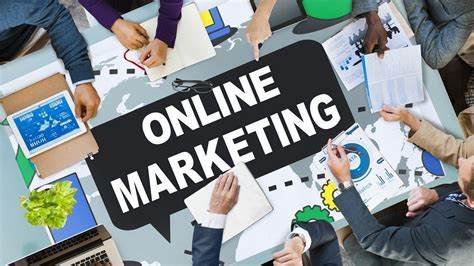
Online Marketing Tools & Platforms
In the ever-evolving digital landscape, having the right tools and platforms is essential for businesses to execute effective online marketing strategies. These tools streamline processes, improve campaign efficiency, and offer valuable insights into performance. For SEO, platforms like Google Analytics and SEMrush help track website traffic, optimize content, and monitor keyword rankings. Email marketing tools such as Mailchimp and Constant Contact allow businesses to automate campaigns, segment audiences, and track engagement metrics like open and click-through rates. In social media marketing, platforms like Hootsuite and Buffer enable businesses to schedule posts, manage multiple accounts, and analyze engagement across different networks like Facebook, Instagram, and Twitter.
For paid advertising, tools like Google Ads and Facebook Ads Manager provide robust features for creating targeted campaigns, setting budgets, and measuring ad performance. Content management systems (CMS) such as WordPress and HubSpot help businesses easily create and manage blog posts, landing pages, and other digital content, while also integrating SEO features. Additionally, affiliate marketing platforms like CJ Affiliate and Share ASale connect businesses with affiliates who promote their products, further expanding reach. With these tools, businesses can efficiently execute and measure their marketing efforts, optimizing strategies for growth and long-term success in the competitive online space.
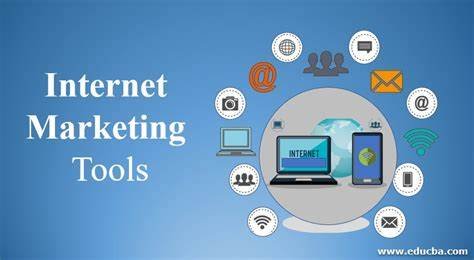
Measuring Success in Online Marketing
Measuring success in online marketing is crucial for understanding the effectiveness of your strategies and optimizing future campaigns. Key Performance Indicators (KPIs) such as website traffic, conversion rates, and Return on Investment (ROI) provide valuable insights into how well your marketing efforts are performing. Tools like Google Analytics and social media analytics platforms allow you to track user behavior, measure engagement, and assess the impact of your campaigns across different channels. Monitoring metrics such as click-through rates (CTR), bounce rates, and cost-per-click (CPC) helps in evaluating the efficiency of your advertising spend and content effectiveness.
Effective measurement also involves analyzing customer feedback and engagement metrics, which can indicate how well your messages resonate with your audience. By setting clear objectives and benchmarks, you can compare actual performance against your goals and identify areas for improvement. Regularly reviewing and adjusting your strategies based on data-driven insights ensures that you stay aligned with your business goals and respond to changing market conditions. Ultimately, a comprehensive approach to measuring success helps you refine your online marketing efforts, enhance your ROI, and achieve sustainable growth.
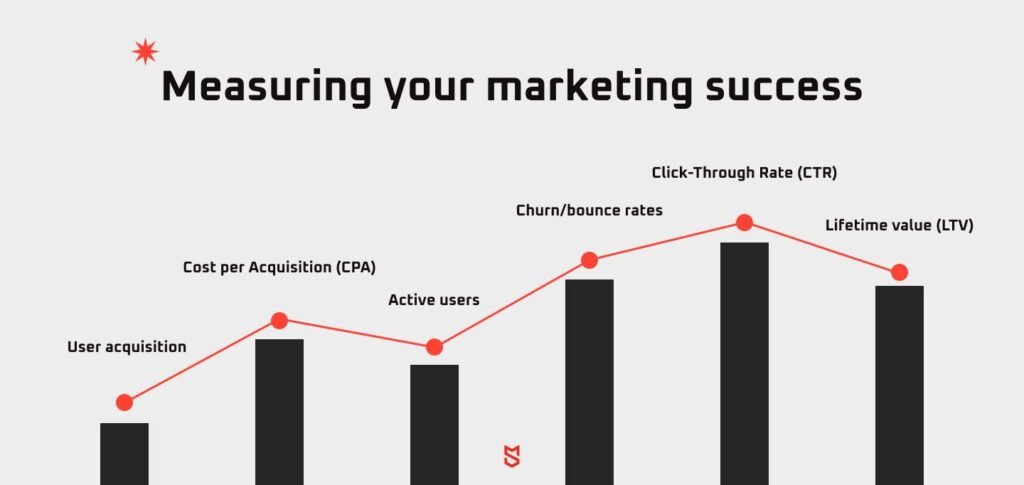
How to Get Started with Online Marketing
Getting started with online marketing involves several strategic steps to build a strong foundation for success. Begin by setting clear, measurable goals that align with your business objectives, such as increasing brand awareness, generating leads, or driving sales. Next, define your target audience to understand their needs, preferences, and online behavior, which will guide your marketing efforts. Develop a comprehensive online marketing plan that outlines your strategies across various channels, including SEO, social media, email, and content marketing. Choose the right tools and platforms to manage and analyze your campaigns, such as Google Analytics for tracking performance and social media management tools for scheduling posts.
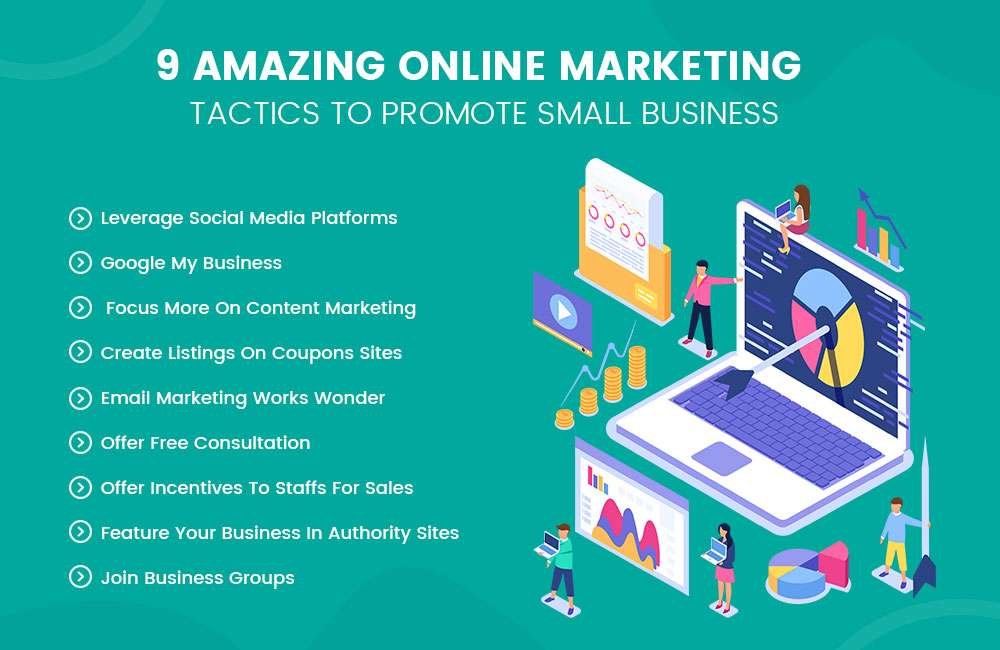
Conclusion
In conclusion, online marketing has become an indispensable tool for businesses seeking to thrive in the digital era. Its diverse strategies—ranging from SEO and PPC to content and social media marketing offer unparalleled opportunities to reach and engage with a global audience. The benefits of online marketing, including cost-effectiveness, targeted reach, and measurable results, make it a powerful asset for driving growth and building brand presence.
By leveraging the right tools and platforms, businesses can optimize their marketing efforts, track performance, and make data-driven decisions to enhance their strategies. As the digital landscape continues to evolve, staying informed about emerging trends and adapting your approach will be crucial for maintaining a competitive edge. Embracing online marketing not only helps in reaching your audience more effectively but also ensures long-term success in a dynamic and ever-changing market.

